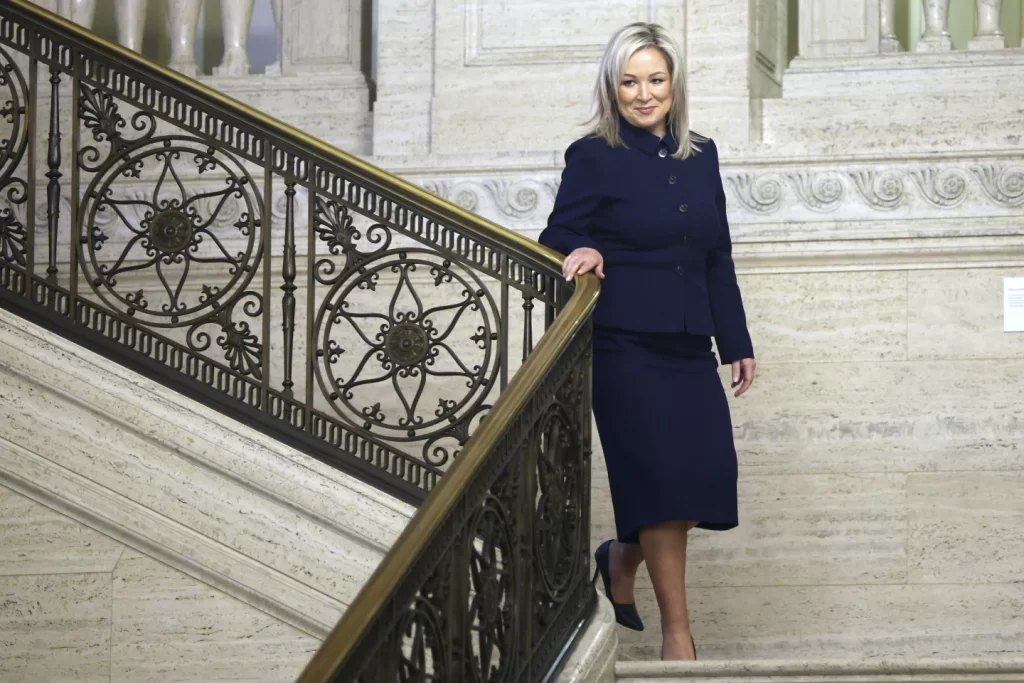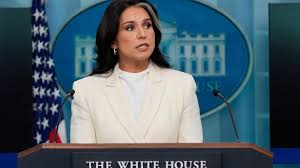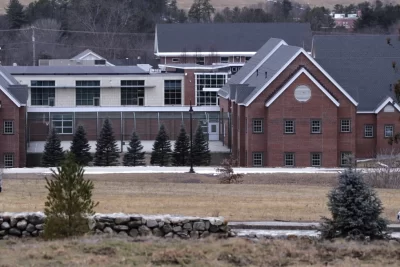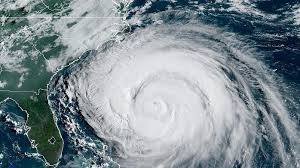
LONDON— An Irish nationalist made history Saturday by becoming Northern Ireland’s first minister as the government returned to work after a two-year boycott by unionists.
Sinn Fein Vice President Michelle O’Neill was named first minister in the government that under the terms of the 1998 Good Friday peace accord shares power equally between Northern Ireland’s two main communities — British unionists who want to stay in the U.K., and Irish nationalists who seek to unite with Ireland.
Northern Ireland was established as a unionist, Protestant-majority part of the U.K. in 1921, following independence for the Republic of Ireland, so O’Neill’s nomination was seen as a highly symbolic moment for nationalists.
“This is a historic day which represents a new dawn,” O’Neill said. “That such a day would ever come would have been unimaginable to my parents and grandparents’ generation. Because of the Good Friday Agreement that old state that they were born into is gone. A more democratic, more equal society has been created making this a better place for everyone.”
O’Neill will share power with deputy first minister Emma Little-Pengelly from the Democratic Unionist Party. The two will be equals, but O’Neill, whose party captured more seats in the Northern Ireland Assembly in the 2022 elections, will hold the more prestigious title.
Neither side can govern without agreement from the other. Government business ground to a half over the past two years after the DUP walked out to protest trade issues related to Brexit.
O’Neill, 47, who was born in the Republic of Ireland but raised in the north, comes from a family with links to the militant Irish Republican Army. Her father was imprisoned as an IRA member, an uncle raised money for the group and two of her cousins were shot — one fatally — by security forces.
O’Neill has been criticized for attending events commemorating the IRA and told an interviewer there was “no alternative” to the group’s armed campaign during the Troubles, a period of about 30 years of violent conflict over the future of Northern Ireland, which ended with the Good Friday accords.
“I don’t think any Irish person ever woke up one morning and thought that conflict was a good idea, but the war came to Ireland,” she said in 2022. “I think at the time there was no alternative, but now, thankfully, we have an alternative to conflict and that’s the Good Friday agreement.”
At 15, O’Neill became pregnant and her mother quit work to help raise her granddaughter so O’Neill could stay in school. She said the Catholic school she attended had not been supportive and pregnancy had been a “very negative” experience.




